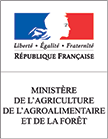While some developed countries passed their forest transition a century ago, “tropical forest-rich” nations still largely depend on forest resources or land clearing for their development. Hence, tropical forests are retreating at an alarming rate due to conversion to cash crops and other commodities.
Tropical forests are also intensively used by a wide range of stakeholders and represent an important source of livelihoods for own consumption (food, wood, medicines etc.) and incomes (sales of timber and non-timber forest products).
These forest lands when managed for production – so-called managed forests – are a major component of today’s tropical landscapes, representing up to 50% of all tropical forests.
Managed and disturbed tropical forests now dominate tropical forest landscapes and therefore play crucial roles in biodiversity conservation and ensuring the continued production of goods and environmental services, including carbon sequestration.
Forest ecosystems are important for the carbon cycle and their disappearance would severely impact global warming and biodiversity. Therefore, both the international scientific community and policy makers have to consider tropical forest landscapes as the key terrestrial ecosystems of the future that need to be sustainably used and protected.
The conservation of biodiversity and forest ecosystems will mostly take place within forests influenced by human activity (i.e. logged or domesticated) and managed by very different types of stakeholders. Sustainable forest management is increasingly acknowledged as a key component of climate change solutions and features in the Sustainable Development Goals (Goal 15, indirectly Goal 6).
Tropical forest management will have to consider multiple objectives to satisfy the diversity of stakeholders such as logging companies, farmers and communities. It must also identify trade-offs between the sustainable production of goods and conservation of environmental services.
Participants at the Discussion Forum will debate the roles and future of managed tropical forests and the challenges of defining trade-offs between provision of goods on one hand, and maintenance of carbon stocks, biodiversity, and other environmental services on the other hand.
Three 15 minute presentations will outline the main challenges of managing forests in each of the major tropical forest regions (Amazon, Congo Basin and Southeast Asia) and a fourth one will focus on the challenges of tropical forest restoration.
For example, in South East Asia most forests have been logged and are now entering a second cycle with unknown long –term consequences. In the Congo Basin most production forests in concessions are still relatively intact. In Latin America, ranching and soy production impact the Amazon biome and dry cerrado forests respectively.
A discussion panel with up to six experts, including three speakers addressing questions from the moderator will launch the debate. This will be followed by questions from the audience.
Contact person: Plinio Sist (CIRAD): plinio.sist@cirad.fr
Key questions addressed
- What set of key institutional, policy and legislative conditions need to be in place to enable managed tropical forests to provide goods and environmental services in the context of climate change?
- What are the conservation values of managed tropical forests in comparison with primary forests and other terrestrial ecosystems?
- What are the key research priorities to conserve and enhance the value of managed tropical forests in each region?
Background reading
Climate change guidelines for policy makers
Climate change guidelines for forest managers:






































